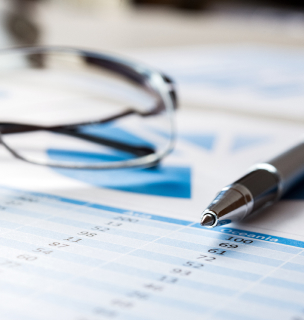GST Accounting Services Perth
GST (or the goods and services tax) for a private business should be straightforward tax but can become complicated by the diversity of business transactions.
At its most basic level, if a business does not correctly record its GST paid (input tax credits on its taxable purchases), the cost of the goods and services tax in Australia becomes an actual cost borne by the business.
Bookkeeping and clean data matters with GST. So, using software solutions (like Xero) that can handle high volume transactions to identify and track the GST within your business is a fundamental base level of GST tax control. And ensuring that the GST recorded with your business ultimately winds up in your BAS reported to the ATO is the next step in the process – while ensuring you have evidence to support the underlying transactions if requested in an ATO review.
At Westcourt, our bookkeeping services are suited to providing cost-effective, timely and accurate BAS reporting that includes the correct amount of GST for your business. And our tax automation technology, using cloud accounting, can help many smaller to middle market business steam-line GST management.
If a family in business is involved in real estate, overseas transactions, caravan parks, lending, or business sales: the GST law becomes more complex. Applying the GST margin scheme, going concern concession, GST farm concession, or deferred GST on imported goods can also be deceptively simple.
At Westcourt, we know that GST is often more profound than it appears, and we work to simplify that complexity. So, our intricate knowledge of the GST law and its peculiar application – especially in real estate – has given us the ability to legitimately create GST outcomes for clients that are unexpected, simplified and significantly add value to the life cycle. If that knowledge is then extended to other similar but different areas of the law, the outcomes can be increased. This could include consideration of builders, the principal residence exemption, lower rate GST charges for caravan parks, input taxed supplies, the change of intention of property assets, financial supplies and creation of permanent establishments for income tax with supplies connected to Australia.
At Westcourt, our services are suited for GST advisory because:
- We are a sole focus firm – so our training and development are controlled and pointed towards GST issues relevant to families and small(er) scale property projects.
- Our tax leadership within the profession gives us a significant advantage in understanding the GST tax benefits available to high net wealth, privately owned, family businesses.
- We have dedicated GST specialists within our firm who are committed to GST advice.
- Our access to GST specialists internationally through the GGI Global Alliance Network gives us a whole tax approach to GST transactions done internationally.
- We have dedicated BAS process automation staff focused on efficient BAS preparation.
Frequently Asked Questions
Goods and Services Tax (GST) is a value-added tax that is levied on most goods and services in Australia. GST is a broad-based tax that applies to most transactions in the economy, including the sale of goods, the provision of services, and the importation of goods into Australia.
Under the GST system, businesses that are registered for GST must charge GST on the goods and services they supply, and they can claim back the GST they have paid on their business inputs as a credit. This system is known as a “credit-invoice” system and is designed to ensure that only the value added at each stage of the production and distribution process is taxed.
The current GST rate in Australia is 10%. This means that businesses must charge an additional 10% on the sale of most goods and services, and they can claim back the GST they have paid on their business inputs as a credit.
GST is a significant source of revenue for the Australian government, and it helps to fund a range of public services, including health, education, and infrastructure. Businesses that are registered for GST must comply with the GST rules and regulations, including registering for GST, charging GST on their sales, and lodging periodic GST returns with the Australian Taxation Office (ATO).
If you’re a business owner or a consumer, it’s important to understand how GST works and how it affects you. A tax professional can help you understand your GST obligations and ensure that you comply with the relevant GST rules and regulations.
The Goods and Services Tax (GST) rate in Australia is 10% for all taxable sales, including ordinary sales, GST-free sales, input taxed sales, and reduced input taxed credit sales.
Ordinary sales: Ordinary sales are sales of goods and services that are subject to GST at the standard rate of 10%. Businesses registered for GST must charge GST on these sales and remit the GST to the Australian Taxation Office (ATO).
GST-free sales: Some goods and services are GST-free, which means that they are exempt from GST and businesses do not charge GST on these sales. Examples of GST-free sales include basic food items, most health services, and some education courses.
Input taxed sales: Some goods and services are input taxed, which means that businesses do not charge GST on these sales, but they cannot claim back the GST they have paid on their inputs. Examples of input taxed sales include financial services and residential rent.
Reduced input taxed credit sales: Some goods and services are subject to a reduced input tax credit rate, which means that businesses can claim back only a portion of the GST they have paid on their inputs. An example of a reduced input taxed credit sale is the supply of a going concern.
It’s important to understand that the GST treatment of goods and services can be complex and subject to change, and it’s a good idea to seek advice from a tax professional if you need help with your GST obligations. A tax professional like Westcourt can help you understand the GST treatment of your sales and ensure that you comply with the relevant GST rules and regulations.
















